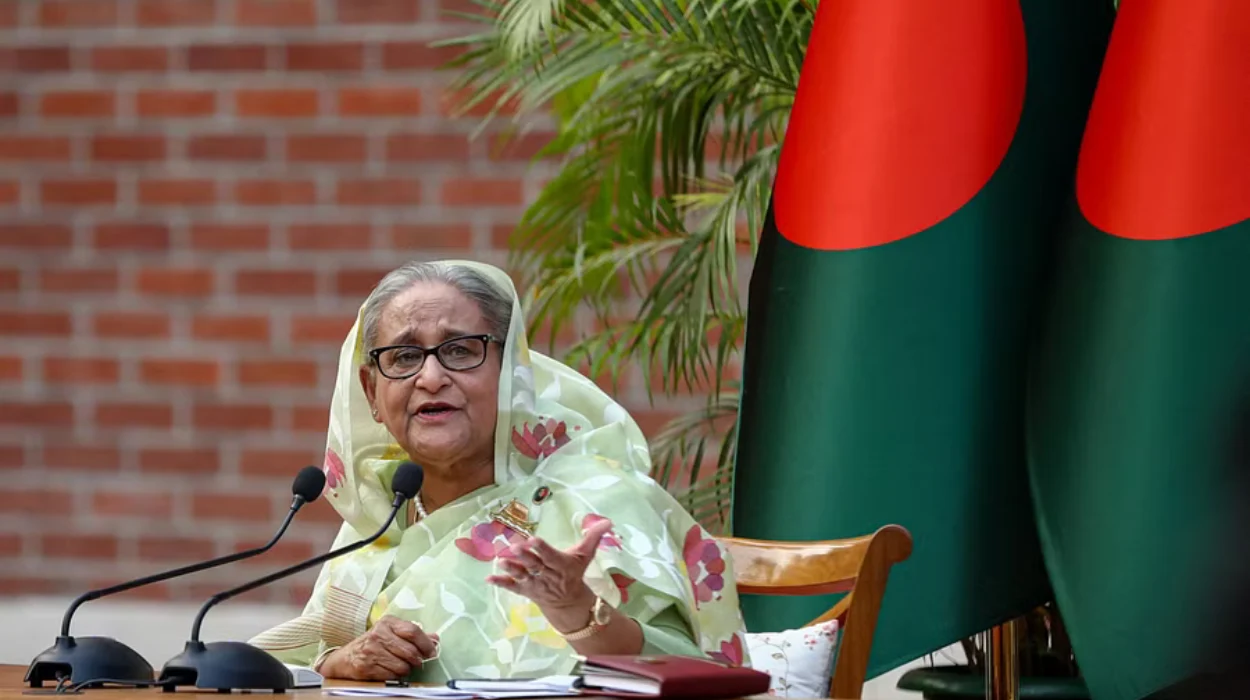Bangladesh (Transatlantic Today) —In a dramatic turn of events, Sheikh Hasina, the Prime Minister of Bangladesh, has resigned and fled the country following weeks of widespread protests that resulted in the deaths of hundreds. The political crisis, the worst in her 15-year rule, escalated after student-led demonstrations against a controversial quota system for government jobs morphed into a broader call for her resignation.
On Monday, the 76-year-old Hasina left Dhaka in an army helicopter, accompanied by her sister, as tens of thousands of protesters surrounded government offices and residences in the capital. In her absence, General Waker-Uz-Zaman, the chief of Bangladesh’s army, announced the establishment of an interim government to oversee the country of 170 million people, though he provided few details about the transition.
Reactions to Hasina’s resignation and the ongoing unrest have poured in from various quarters, both domestic and international.
Opposition Voices
Tarique Rahman, the acting chairman of the Bangladesh Nationalist Party (BNP) and living in exile in the UK, celebrated Hasina’s departure on social media, stating,
“Hasina’s resignation proves the power of the people.”
International Responses
In the UK, Prime Minister Keir Starmer’s spokesperson expressed grave concern over the violence and loss of life, calling it “completely unacceptable.” The spokesperson emphasized the need to protect the right to peaceful protest and urged the authorities to release peaceful demonstrators and ensure due process for those facing charges. Foreign Secretary David Lammy added that the people of Bangladesh deserve a thorough UN-led investigation into recent events.
In Whitechapel, London, home to a large Bangladeshi community, celebrations erupted as many took to the streets waving flags and chanting, “Bangladesh! Bangladesh!” Local resident Abu Sayem remarked,
“We achieved our second independence now… Hasina has snatched away our rights.”
Germany’s Federal Foreign Office called for Bangladesh to remain on its democratic path amid the unrest, while the European Union urged a “peaceful transition” to a democratically elected government. EU foreign policy chief Josep Borrell underscored the importance of respecting human rights during this transition.
The United States commended the army’s restraint and urged all parties to avoid further violence. Department of State spokesperson Matthew Miller highlighted the tragic loss of life over recent weeks and called for calm. Miller acknowledged reports that the army resisted pressure to crack down on peaceful protests, stating that if true, this would be a positive development. The White House added that the formation of an interim government should be democratic and inclusive, praising the army’s restraint.
Senate Majority Leader Chuck Schumer stated that Hasina’s violent response to legitimate protests rendered her rule untenable, urging justice for those killed and advocating for a balanced interim government that respects all citizens’ rights.
United Nations Stance
UN Secretary-General Antonio Guterres called for calm and emphasized the need for a peaceful and democratic transition in Bangladesh. His spokesman, Farhan Haq, affirmed Guterres’s solidarity with the Bangladeshi people and highlighted the necessity for an independent investigation into the violence. Irene Khan, the UN special rapporteur on freedom of expression, acknowledged the challenging road ahead for the army, stressing the importance of human rights in this transitional period.
As Bangladesh grapples with its political future, the focus remains on establishing a government that prioritizes democracy and accountability in the face of recent violence and turmoil.


























